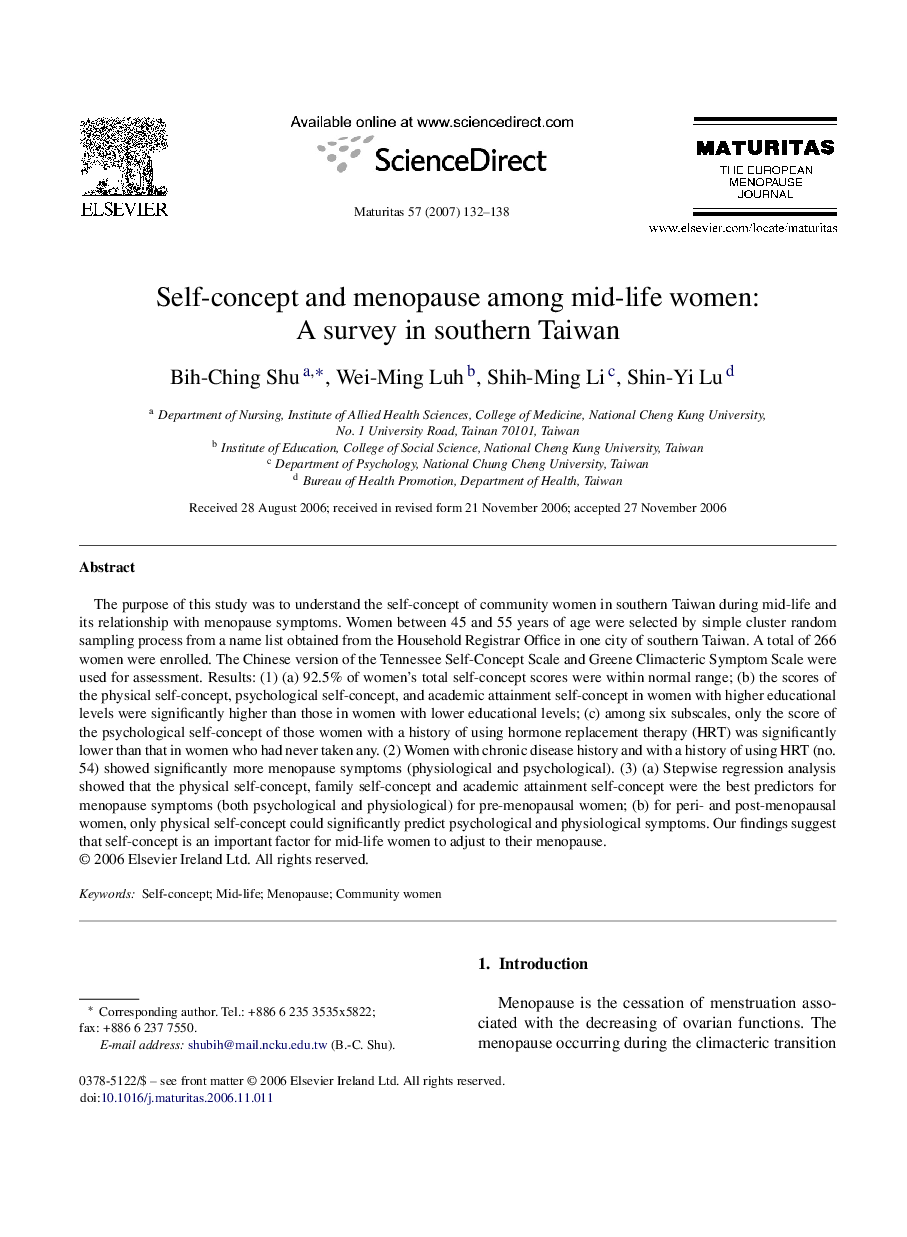| Article ID | Journal | Published Year | Pages | File Type |
|---|---|---|---|---|
| 1918906 | Maturitas | 2007 | 7 Pages |
The purpose of this study was to understand the self-concept of community women in southern Taiwan during mid-life and its relationship with menopause symptoms. Women between 45 and 55 years of age were selected by simple cluster random sampling process from a name list obtained from the Household Registrar Office in one city of southern Taiwan. A total of 266 women were enrolled. The Chinese version of the Tennessee Self-Concept Scale and Greene Climacteric Symptom Scale were used for assessment. Results: (1) (a) 92.5% of women's total self-concept scores were within normal range; (b) the scores of the physical self-concept, psychological self-concept, and academic attainment self-concept in women with higher educational levels were significantly higher than those in women with lower educational levels; (c) among six subscales, only the score of the psychological self-concept of those women with a history of using hormone replacement therapy (HRT) was significantly lower than that in women who had never taken any. (2) Women with chronic disease history and with a history of using HRT (no. 54) showed significantly more menopause symptoms (physiological and psychological). (3) (a) Stepwise regression analysis showed that the physical self-concept, family self-concept and academic attainment self-concept were the best predictors for menopause symptoms (both psychological and physiological) for pre-menopausal women; (b) for peri- and post-menopausal women, only physical self-concept could significantly predict psychological and physiological symptoms. Our findings suggest that self-concept is an important factor for mid-life women to adjust to their menopause.
